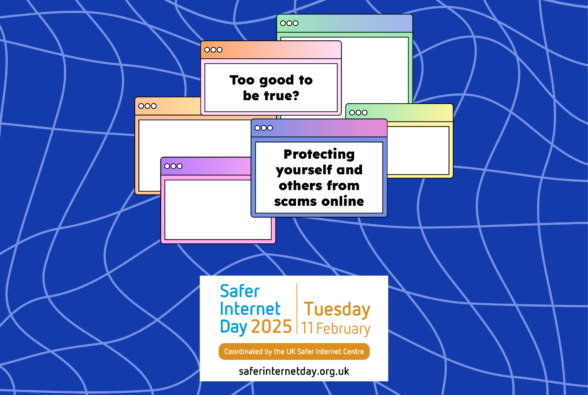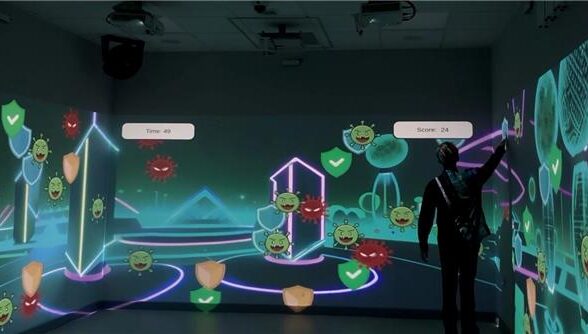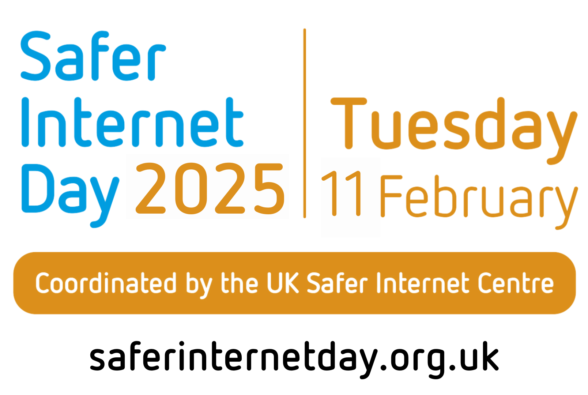We’re excited to share how our colleges are marking Safer Internet Day with activities, resources and information stands for students.
This national event happening on Tuesday 11 February, closely aligns with our ongoing Safe students, Safe staff, Safe spaces campaign, reinforcing our commitment to creating a safe and supportive digital environment for all.
This year’s theme, Too good to be true, will focus on:
- Raising awareness of online scams
- Helping people protect themselves and their families
- Exploring the impact of emerging technologies like AI on scams
- Knowing where to get help if something goes wrong.
On ALO, students can also access information on the Student IT acceptable use policy, Active Bystandership, among other online safety resources and courses.

Webinar for parents and carers
This online session happening on Tuesday 11 February, at 6-7pm, will provide essential guidance on staying safe online and offer advice on where to seek help if affected.
Student resources from Peerscroller

At the heart of this campaign are our brand-new Peerscroller videos on the topic of online safety and spotting scams.
These short, relatable videos, created by peers and fact-checked by experts, are designed to deliver essential online safety advice to our students in an engaging, social media-inspired format.
Please watch these videos with your young person and explore the Safer Internet Day webpage for many additional tips and resources.
Student-focused events
We have an exciting range of activities in store, designed to help raise awareness of online safety in an interactive way:
- Immersive Escape Room: Available in our Learning Environments (library) in Reading, Bracknell and Guildford on Wednesday 12 February. Teachers can book their class in for a session for this immersive adventure, where the only way out is to for students to use their knowledge of online scamming!
- Students can also play an online version, which they can find in the ALO Online Safety Hub.
- Online Safety Hub on ALO: a go-to resource for digital safety information
- Crypto Hack: Students can drop in to our Learning Environments to play this fun game. Students will use their phones and lightning reflexes to play! Available on Tuesday 11 February and Thursday 13 February at 10am-12pm and 1-3pm.
- In our Learning Environments, there will also be Safer Internet Day videos, showing tips and tricks to beating the scammers. Students can try our ‘Scam or Safe’ board, to learn the methods used by fraudsters.
- Students can visit our Awareness raising stands and activities in our Reception areas and Recharge.
- Students can take part in tutorials led by Progress Coaches, exploring digital safety topics.

Keeping safe online
On your college website, the Supporting You section offers students further guidance on:
- Keeping yourself safe
- Safeguarding
- Speak Up Speak Out – sexual wellbeing
Please advise your young person to visit these resources for additional resources and definitions on online safety.

Cyberbullying
If your young person is experiencing cyberbullying, you can:
- Report online abuse on the online platform, using their Report features.
- Customise their feed to limit people, pages or groups popping up on your accounts.
- Review their privacy settings to make sure their content is only visible to those they can trust.
- Block or delete people or pages being abusive.
- Screenshot or keep record of the abusive behaviour as this may be useful if you or they need to report it later.
- Report harmful content online via www.reportharmfulcontent.com
- Report illegal content to Police via 101 or online.
- Seek support from any member of staff at college. You can report incidents of bullying to our Behaviour and Welfare Officers who are located in our Advice and Admissions Centres.
- Report safeguarding concerns to our Safeguarding Advisers in Student Support or via email: safe@activatelearning.ac.uk.
Our Online Safety Initiative aims to educate and empower everyone associated with our colleges about the challenges of the digital world. We aim to provide the tools you need to recognise and respond to online threats and foster responsible digital citizenship for the future.
Stay connected with us via social media and your young person’s college website for further updates, tips, and resources.